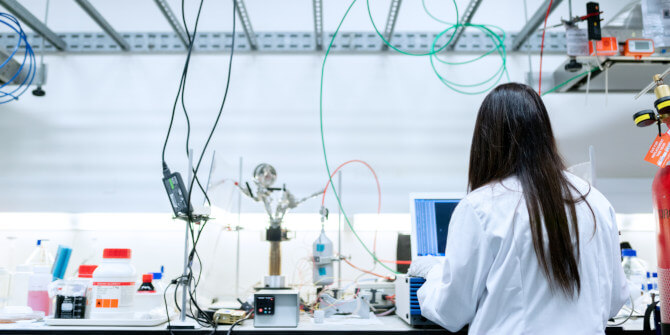Amongst other things, the conflict in Ukraine has demonstrated the failure of western diplomacy to contain the outbreak of war in Europe. Over the past decades, one aspect of this diplomacy has involved the role of scientific and research relationships between Russia and the West, or ‘science diplomacy’. In this post, Doubravka Olšáková and Sam Robinson discuss how the Russia-Ukraine war highlights the limitations of conceptions of science diplomacy since the turn of the 21st century.
Science diplomacy is a distinctly 21st Century construction. Popularised by the American Association for the Advancement of Science (AAAS) and Royal Society in 2011, science diplomacy was not a concept developed during the Cold War, the post-war settlement of Europe, or even the post-Cold War age. The term “science diplomacy” itself first emerged from the US State Department around the year 2000, in the wake of terrorism, an unsettled Middle East, and the rise of global scientific challenges (climate change and world health management). This is the first myth of science diplomacy, that it is a concept with a long history.
The term unified a previous Cold War era split between the agenda of cultural (soft power) and military attachés (hard power). Previously, cultural diplomacy covered both culture and science, while military attachés agendas included not only military items, but also technologies. Science diplomacy, as defined by the AAAS, is deliberately wide enough to cover soft as well as hard power in international relations. Consequently, rather than being a strength, this broad all-encompassing definition and role for science diplomacy, creates tensions during times of crisis, but works very well as a concept during times of peace. Science diplomacy’s primary mission is therefore the same as the mission of diplomacy itself, to promote and preserve national interests. Thus, the second myth of science diplomacy, is that science is a synonym for…







